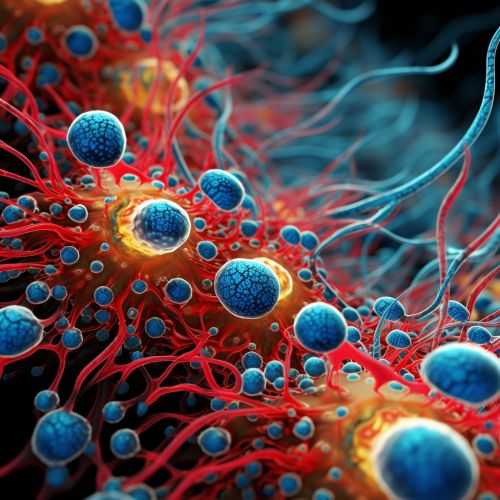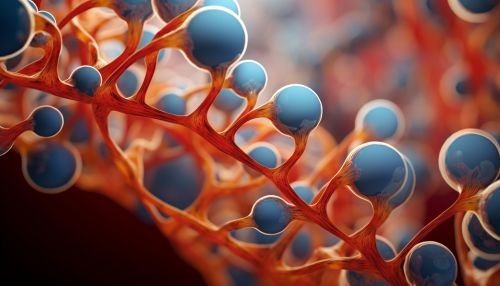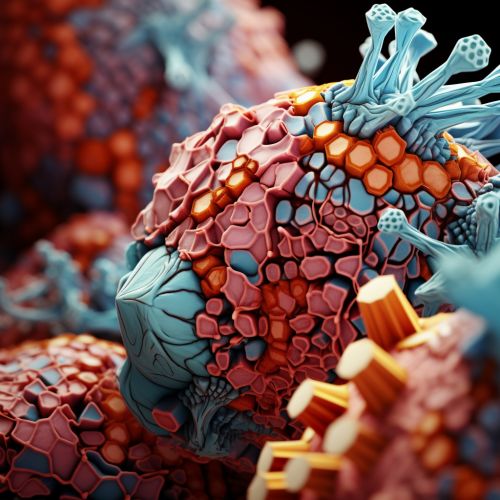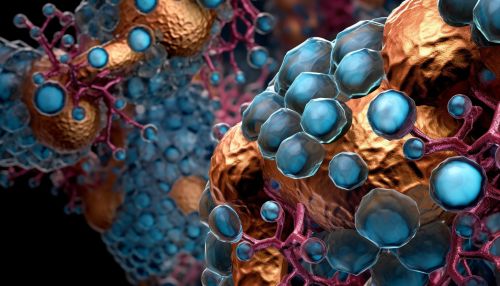Hormones
Introduction
Hormones are chemical substances produced in the body that control and regulate the activity of certain cells or organs. These powerful substances are secreted by various endocrine glands in the body, including the pituitary, thyroid, and adrenal glands, as well as the pancreas, ovaries, and testes. Hormones are essential for every activity of life, including the processes of digestion, metabolism, growth, reproduction, and mood control.
Classification of Hormones
Hormones can be broadly classified into three types: peptide hormones, steroid hormones, and amine hormones.
Peptide Hormones


Peptide hormones are made up of chains of amino acids and are water-soluble. They cannot pass through the cell membrane and therefore bind to receptors on the cell surface. Examples of peptide hormones include insulin, glucagon, and growth hormone.
Steroid Hormones


Steroid hormones are derived from cholesterol and are lipid-soluble. This allows them to pass through the cell membrane and bind to receptors inside the cell. Examples of steroid hormones include cortisol, testosterone, and estrogen.
Amine Hormones
Amine hormones are derived from single amino acids, such as tyrosine and tryptophan. They can be either water-soluble or lipid-soluble. Examples of amine hormones include adrenaline, noradrenaline, and thyroid hormones.
Hormone Function
Hormones play a crucial role in the body's overall functioning. They act as messengers, coordinating various physiological processes in the body.
Regulation of Metabolism
Hormones such as insulin, glucagon, and thyroid hormones play a key role in the regulation of metabolism. Insulin and glucagon regulate blood glucose levels, while thyroid hormones regulate the body's overall metabolic rate.
Growth and Development
Growth hormone, thyroid hormones, and sex hormones (estrogen and testosterone) are essential for normal growth and development. Growth hormone stimulates growth and cell reproduction, thyroid hormones regulate metabolism and energy production, and sex hormones control the development of secondary sexual characteristics and reproductive function.
Regulation of Mood and Emotion
Hormones such as cortisol, adrenaline, and serotonin play a significant role in regulating mood and emotion. Cortisol and adrenaline are involved in the body's stress response, while serotonin regulates mood, appetite, and sleep.
Hormone Regulation
The production and release of hormones in the body are tightly regulated by a system known as the endocrine system. This system operates via a series of feedback loops. For example, if the level of a particular hormone in the blood is low, the endocrine system stimulates the gland that produces that hormone to increase production. Conversely, if the level of the hormone is high, the endocrine system signals the gland to decrease production.
Hormonal Disorders
When the body's hormonal balance is disrupted, it can lead to a variety of disorders. These can range from relatively mild conditions, such as acne or premenstrual syndrome, to more serious diseases, such as diabetes, thyroid disease, or adrenal insufficiency.
Diabetes
Diabetes is a condition characterized by high blood glucose levels. It is caused by either a lack of insulin (Type 1 diabetes) or an inability of the body to use insulin effectively (Type 2 diabetes).
Thyroid Disease
Thyroid disease can occur when the thyroid gland produces either too much thyroid hormone (hyperthyroidism) or too little (hypothyroidism). Symptoms can include fatigue, weight gain or loss, and mood changes.
Adrenal Insufficiency
Adrenal insufficiency, also known as Addison's disease, is a condition in which the adrenal glands do not produce enough cortisol. Symptoms can include fatigue, weight loss, and low blood pressure.
Conclusion
Hormones play a vital role in maintaining the body's homeostasis. They regulate a wide range of physiological processes, from metabolism and growth to mood and emotion. Understanding how hormones function and how they are regulated can provide valuable insights into human health and disease.
